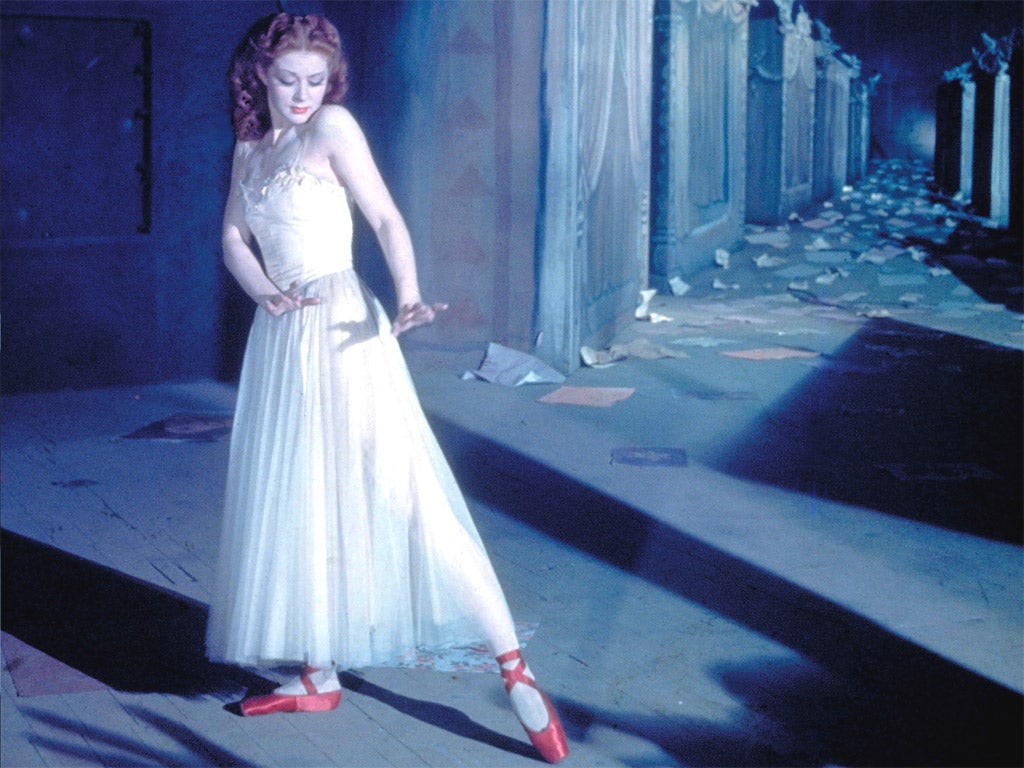The week in radio: A magic mix of music and movies in the BBC's Sound of Cinema

Your support helps us to tell the story
From reproductive rights to climate change to Big Tech, The Independent is on the ground when the story is developing. Whether it's investigating the financials of Elon Musk's pro-Trump PAC or producing our latest documentary, 'The A Word', which shines a light on the American women fighting for reproductive rights, we know how important it is to parse out the facts from the messaging.
At such a critical moment in US history, we need reporters on the ground. Your donation allows us to keep sending journalists to speak to both sides of the story.
The Independent is trusted by Americans across the entire political spectrum. And unlike many other quality news outlets, we choose not to lock Americans out of our reporting and analysis with paywalls. We believe quality journalism should be available to everyone, paid for by those who can afford it.
Your support makes all the difference.I love music and I love film. You might say they are my main passions in life if you don't count disco nail varnish and the pulled-pork sandwiches served in the pub opposite my house. So several weeks ago when the BBC announced a season of programmes called Sound of Cinema to be rolled out across both TV and radio, I let out a little cheer and blocked out a large chunk of my September diary with the reminders: "comfy clothes", "snacks" and "Radio 3".
It's hardly been a chore. What could have been a thin idea dealt with over a scattering of programmes in a single weekend has proved a meaty and compelling theme handled with style and depth over several weeks.
Over the last fortnight I've been catapulted, moist-eyed, back to early childhood by the sound of "Fat Sam's Grand Slam" from the film Bugsy Malone, played by Sean Rafferty on In Tune as he talked to its director Alan Parker.
I've come over all clammy as the film historian and Night Waves presenter Matthew Sweet exhumed the sounds of Jack Clayton's horror The Innocents alongside two of its stars, Peter Wyngarde and Clytie Jessop. (If you're in the mood to have your nerves shredded, listen to the opening lullaby "O Willow Waly" sung by Isla Cameron. You may never sleep again). I have shuddered as the dancer Deborah Bull, one of the contributors to The Essay series Praising Powell and Pressburger, recalled the grisly fate that met Moira Shearer in The Red Shoes when asked to choose between her husband and her career.
I got the heebie-jeebies all over again as the journalist Jonathan Coffey opened Radio 3's Sunday Feature with a few bars of Bernard Herrmann's score for Hitchcock's Vertigo, triggering an instant mental picture of James Stewart hanging off a building by his fingernails. Such is the power of music, storing film stills in your mind and then dusting them off years later with a mere five seconds of sound.
Coffey's subsequent investigation into the business of film-scoring in contemporary Hollywood took a surprising turn as one of his interviewees, the composer James Horner, lamented the lack of artistic vision at today's film studios. Horner talked with audible disgust about the homogenisation of the blockbuster and the teams of people fiddling away at films with copycat scores to boost focus group ratings and pull in greater profits. These people, he said, are "part of the panic process... I'm not being told 'Go with your heart', I'm being told 'Go with the flow'." None of what he had to say was that startling; the surprising part was that it was Horner – the man behind the music for God-awful, money-spinning beasts like Titanic, Troy and Avatar – was saying it.
A whole different sort of working relationship was presented in Twenty Minutes – Conversations with Directors and Film Composers in which Tom Service was joined by Ken Loach and the composer George Fenton. Having previous written big, blustering scores for Gandhi and Dangerous Liaisons, Fenton had to learn a new way of operating when he began working with Loach. He explained that Hollywood tends to use music as an emotional shorthand, but in Loach's films there is no such thing. The music is there to reinforce the reality of a picture rather than the artifice.
"Finding the music's voice that makes it implicit in the film rather than an addition is very difficult," said Loach. It occurred to me as I listened that, watching Loach films, I had never consciously heard music any at all, which is probably exactly what both composer and director were aiming for.
Join our commenting forum
Join thought-provoking conversations, follow other Independent readers and see their replies
Comments